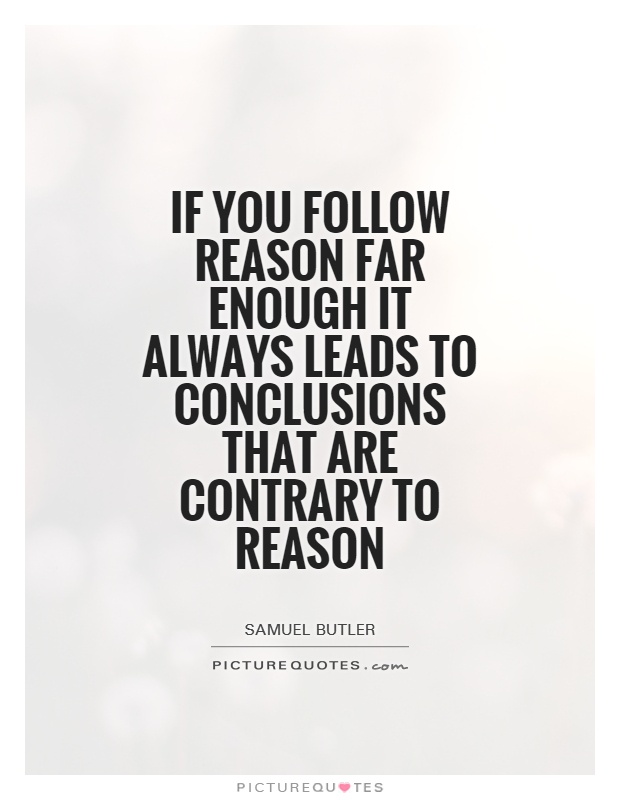If you follow reason far enough it always leads to conclusions that are contrary to reason

If you follow reason far enough it always leads to conclusions that are contrary to reason
Samuel Butler, a 19th-century English author and satirist, was known for his sharp wit and unconventional ideas. One of his most famous quotes is, “If you follow reason far enough it always leads to conclusions that are contrary to reason.” This statement encapsulates Butler’s belief in the limitations of human reason and the paradoxical nature of truth.Butler was a keen observer of human behavior and society, and he often used satire to critique the prevailing beliefs and conventions of his time. In his works, he frequently explored the idea that reason, when taken to its logical extreme, can lead to absurd or contradictory conclusions. This concept is evident in his novel “Erewhon,” where he satirizes the rigid adherence to societal norms and the blind faith in scientific progress.
One interpretation of Butler’s quote is that reason, when applied rigorously and without question, can lead to conclusions that defy common sense or intuition. This idea challenges the notion that reason is always a reliable guide to truth and suggests that there are inherent limitations to human understanding. Butler may have been suggesting that reason, while a valuable tool for making sense of the world, is ultimately fallible and subject to bias and error.
Another interpretation of Butler’s quote is that reason, when taken to its logical extreme, can lead to paradoxical or self-referential conclusions. This idea is reminiscent of the concept of Gödel’s incompleteness theorems, which demonstrate that any formal system of logic is inherently incomplete or inconsistent. Butler may have been suggesting that reason, like any human endeavor, is ultimately limited by its own inherent contradictions and limitations.
Overall, Butler’s quote challenges us to question our assumptions about the nature of reason and truth. It reminds us that human understanding is always provisional and subject to revision, and that the pursuit of knowledge is a never-ending journey of discovery and self-reflection. In a world where certainty is often prized above all else, Butler’s words serve as a timely reminder of the complexity and ambiguity of the human experience.












 Friendship Quotes
Friendship Quotes Love Quotes
Love Quotes Life Quotes
Life Quotes Funny Quotes
Funny Quotes Motivational Quotes
Motivational Quotes Inspirational Quotes
Inspirational Quotes